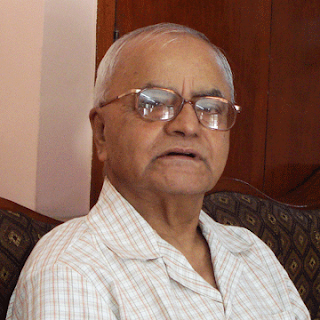Columns
Are political parties relevant today?
They are losing their political space to non-political individuals and business tycoons.
Lok Raj Baral
Lately, there has been a surge in rightist nationalistic trends goaded by non-political dealers such as business tycoons, the mafia and ‘bichauliya’ (middlemen). Can the conventional parties face this? Answers to such questions can be attributed to the use and misuse of parties in the name of democracy. Generally, people see parties in liberal democracies with disdain due to manipulation by a small group of elites with dubious distinction. Parties, for them, are mere instruments for pandering to their vested interests as if they have overtaken democracy.
Political parties are declining all over the world. Bereft of ideology and commitments, political leaders rely more on attractive slogans, regardless of whether such slogans are translated into action after they come to power. Dissatisfied with the conventional parties, evolving both within and outside Parliament, the “voter becomes more independent and autonomous, less controlled and blackmailed” by leaders whose sole objective is to capture power. Even though, in a theoretical sense, the definition, objective and functional standards of parties remain the same, there has been a significant transformation in their political milieu. Parties in both developed and developing countries seem to be losing their space to non-political individuals and business tycoons with undemocratic proclivities and ambitious commitments.
Parties in liberal democracies, except the United Kingdom, are seemingly dysfunctional, if not entirely irrelevant, to be conducive to democratic governance. People’s attitudes towards them are shifting; they seek alternatives to traditional parties’ nominees during elections. Parties that gain power through periodic elections have run out of steam as they have failed to renew and energise themselves to address people’s basic needs. Yet, they continue to survive, though with reduced appeal and public dissatisfaction.
In conventional theory, parties’ origin, evolution and functioning are determined by their experiences in legislatures. In Britain, parties evolved within parliament; in the United States, they were innovated when certain inconveniences arose while implementing the constitution. In political scientist Maurice Duverger’s term, the “mass bureaucratic parties” that evolved in parliament became dominant for a long time. Such parties could be the link between the government and the people. On the other hand, the cadre-based parties, or what German political scientist Otto Kirchheimer has said, the ‘catch-all party,’ are opposed to Duverger’s theory as parties have been formed in different environments and contexts.
Generally, in developing countries, parties are formed to achieve multiple objectives, such as national independence and democracy, depending on specific cases and contexts. Instant parties serve the purpose of achieving immediate goals or catapulting into a power structure. The Nepali Congress (NC) and the Communist Party of Nepal were created for opposite purposes: The former for establishing a constitutional monarchy à la British variety by overthrowing the family oligarchy of the Ranas, and the latter to emulate the one-party communist model that was then being practised in the Soviet Union and China under Mao. However, the communists in Nepal are not dogmatic in an ideological sense but want to maintain their identity under the masquerading rhetoric. Splintered frequently on personal grounds, many of them are on the brink of extinction.
Parties in South Asia serve as instruments of electoral politics, catering to the interests of specific leaders or individuals. The Bharatiya Janata Party (BJP) is a ‘personality party’ resting on Narendra Modi’s charismatic leadership in India. The BJP voters are lured by Modi, who claims, “Modi hai toh mumkin hai” (with Modi, everything is possible). This also holds true for the Congress party. Such personality-based parties would be attenuated when the leaders fail.
In Nepal, unlike in India, the failures of leaders are perceived as the failure of the political system itself. Certain party leaders blame the multiparty system for governmental instability triggered by the stupidity and selfishness of senior leaders. As a remedy, they do not hesitate to propose a two-party system without considering the actual sources of instability. Indian constitution makers discussed this aspect well and eventually concluded that the country’s diversity was not conducive to emulating the British model of the two-party system.
Given the bizarre trends of party politics, emotive populism can play a vital role in introducing instant politics. The Rastriya Swatantra Party (RSP) is the latest example of how an individual can stir, however momentarily, the country’s politics. One-man-dominated parties and political systems possess all the elements of failure. Cashing in on the growing discontent and anger against the old parties’ leaders, Rabi Lamichhane, who established the RSP, is now in the quagmire of corruption cases and is not likely to sustain his role as a populist leader. Interestingly, the RSP’s new cheerleaders, who claimed to be an alternative force to the big old parties, won’t be able to sustain their popular base without any credible programme and leader.
Nevertheless, people fed up with tested leaders and parties seek to shift their choices by casting votes for new leaders who are principled and capable of bringing change. But the voters get disillusioned when they fail to give them any hope. Frantic efforts by some leaders for alternative political arrangements are also inconsequential, thereby vacating political space once again for the same old parties dominated by exhausted and tested leaders.
Parties worldwide are in crisis, but they are hardly trying to get rid of it. The Trump phenomenon in the United States adds a new dimension to the political system. The situation in the US is not assuring, as parties have become mere platforms enabling financial oligarchs to dominate policymaking. Echoing the warning hinted at by the outgoing US President, Joe Biden, The Hindu wrote that the Trump regime has the “shades of a de facto oligarchy”. The outlandish behaviour shown by Trump and the Republican Party being pliable to him does not inspire sensible people to be optimistic. The flawed electoral system has also rendered the party system irrelevant in the US. Such trends are ubiquitous in other countries, and hero worship and lack of political culture have added to the woes of the party system.




 13.12°C Kathmandu
13.12°C Kathmandu















